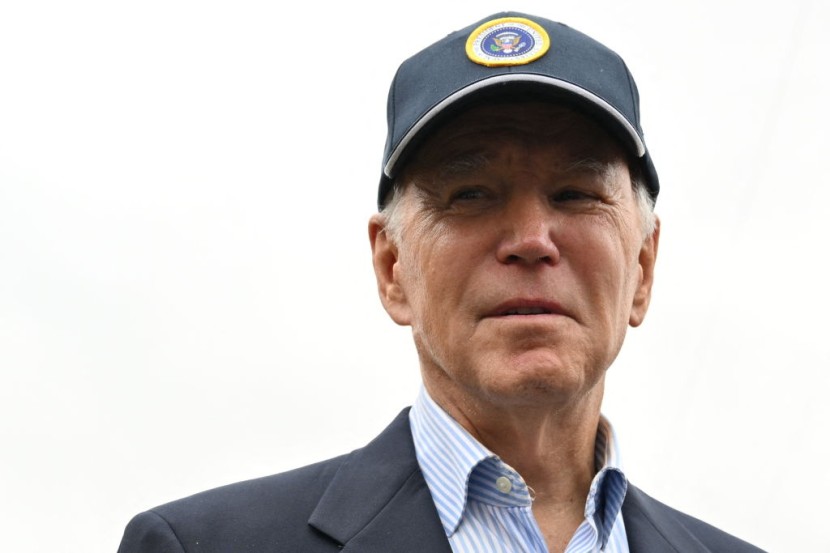
- President Joe Biden demanded Russia release WSJ reporter Evan Gershkovich
- Russian officials continue to speak about Gershkovic
- Gershkovich's potential immediate release is very "unlikely"
President Joe Biden urged Moscow on Friday to release Wall Street Journal reporter Evan Gershkovich, who was detained on espionage charges, which the publication rejects.
When asked about his message to Russia over the arrest of Gershkovich, Biden told White House reporters, "Let him go."
Evan Gershkovich Arrest
The Federal Security Service of Russia has accused US citizen Gershkovich of attempting to obtain secret information. It is the first occasion since the end of the Cold War that an American journalist has been jailed in Russia on suspicion of espionage. The Journal has stated that it "vehemently refutes" the allegations.
Vice President Kamala Harris stated at a news conference in Lusaka, Zambia, that the government was "apprehensive" by the detention of Gershkovich.
During a weeklong visit to Africa, Harris stated, "We will not allow repression of journalists, and we condemn it."
Per AP News, the Biden administration announced it was working to gain consular access to Gershkovich. On Friday, when asked whether he would deport Russian ambassadors or journalists from the United States, Biden answered, "That is not the current plan."
The White House press secretary, Karine Jean-Pierre, described targeting American citizens in Russia as "wrong" and stated that the administration strongly condemns Gershkovich's incarceration.
The Biden administration has also advised US citizens not to travel to Russia and to leave the country immediately if they are already there.
Dmitry Muratov, editor-in-chief of the Novaya Gazeta newspaper and winner of the Nobel Peace Prize, told reporters in Moscow that he knows the imprisoned journalist and that "Gershkovich was not an agent using his professional and journalistic credentials as a cover for espionage."
Speaking more generally about the Kremlin's repression of independent journalism, which has intensified since Russia invaded Ukraine, Muratov said, "This is a trend - trying to attribute espionage and treason to people at every turn, to show that journalism is an enemy profession for the country - for Russian and other journalists."
Organizations Condemn Russia's Arrest of Us Journalist
According to Andrey Kolesnikov, a senior scholar at the Carnegie Endowment for International Peace, the arrest of Arkady Gershkovich represents a "general deterioration of relations with the West."
Kolesnikov stated that Gershkovich "was in the wrong place at the wrong moment," adding that Moscow is always in need of swap candidates for detained Russians abroad.
Over thirty foreign and American news outlets and advocacy groups sent a letter to the Russian ambassador to the United States, Anatoly Antonov, seeking Gershkovich's release.
The organizations stated that Russia should ensure the journalist has "immediate access to an attorney provided by his company" and requested proof of the journalist's health. The Kremlin announced on Friday that accredited journalists could continue to work in Russia.
Dmitry Peskov, the Kremlin's spokesman, stated that all foreign journalists with proper accreditation could continue their journalistic work in the nation without any restrictions and are doing so without difficulty. Since 2017 Gershkovich has worked as a journalist in Russia with formal authorization. According to Moscow, Gershkovich conducted espionage "under the guise" of journalism.
David Satter, a former correspondent for the Financial Times in Moscow and a writer for the Journal, believes that Russia may have multiple objectives for the arrest. In 2014, Satter became the first American correspondent prevented from entering Russia since the end of the Cold War. He was a consultant for Radio Free Europe/Radio Liberty then.
Satter told VOA that another motivation for the Journal reporter's arrest could be discouraging newsgathering. Once Russia invaded Ukraine, conditions for journalists in Russia rapidly deteriorated, and Moscow issued new regulations governing how they may cover the war.
As a result of the rising pressure, many local journalists were forced into exile. While on assignment in Russia, foreign correspondents have previously reported being followed, especially when reporting outside of the major cities. As of late 2022, records from the Committee to Protect Journalists revealed that at least 19 local journalists had been detained for their work in the country.
Related Article : Who Is the WSJ Reporter Arrested in Russia?
@YouTube








